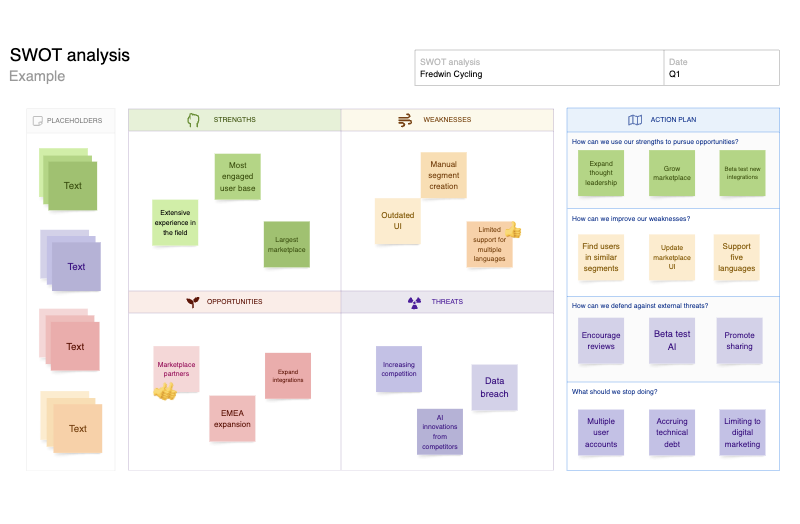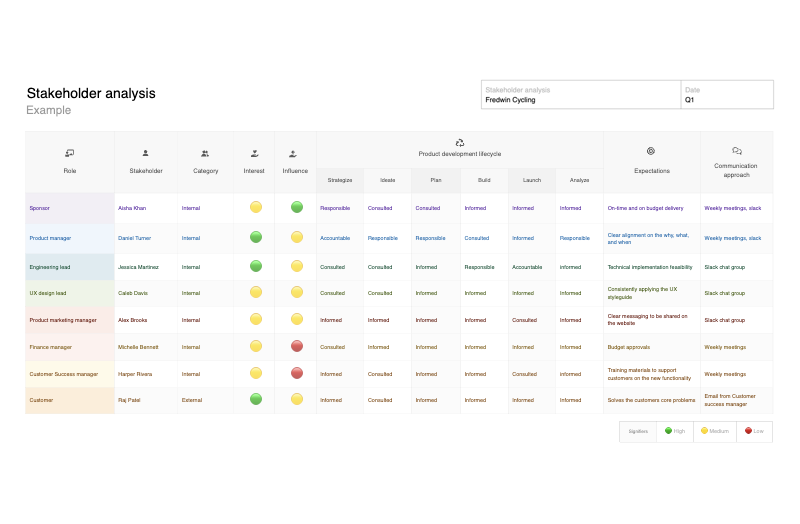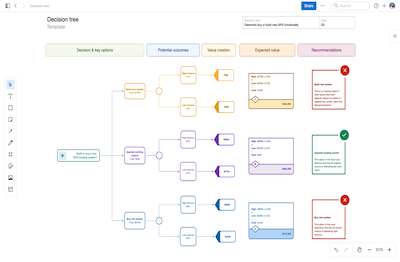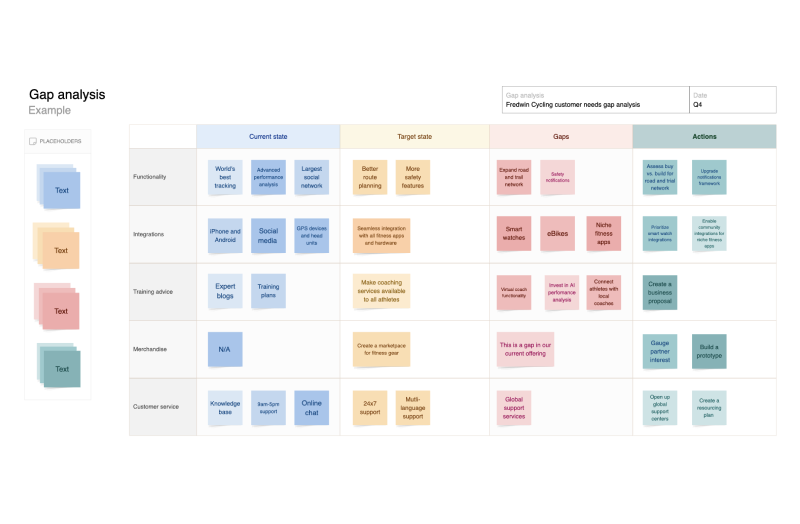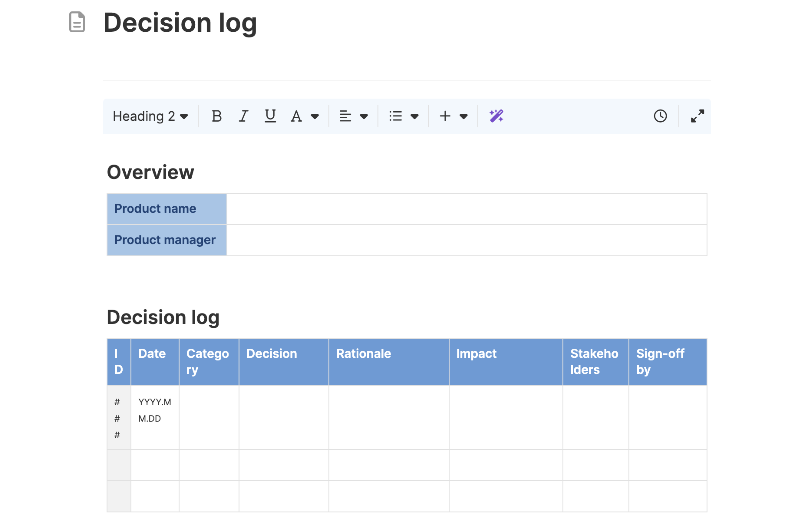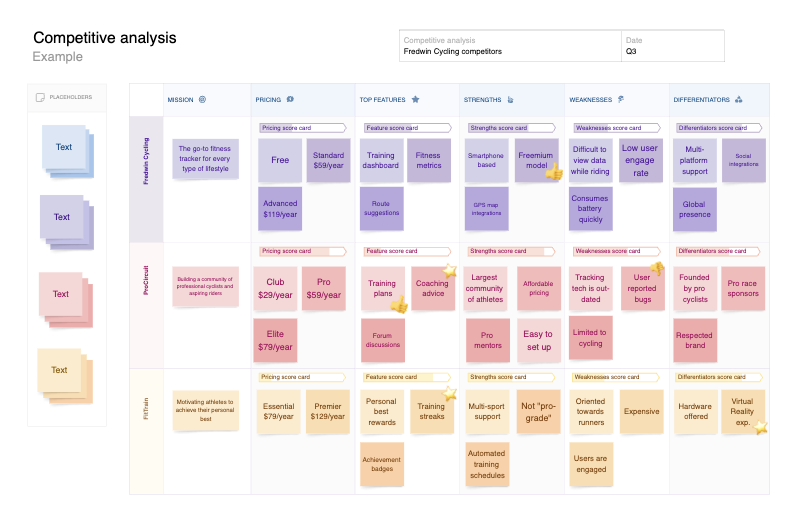Fit gap analysis template
Determine whether a solution meets your organization's needs
Use template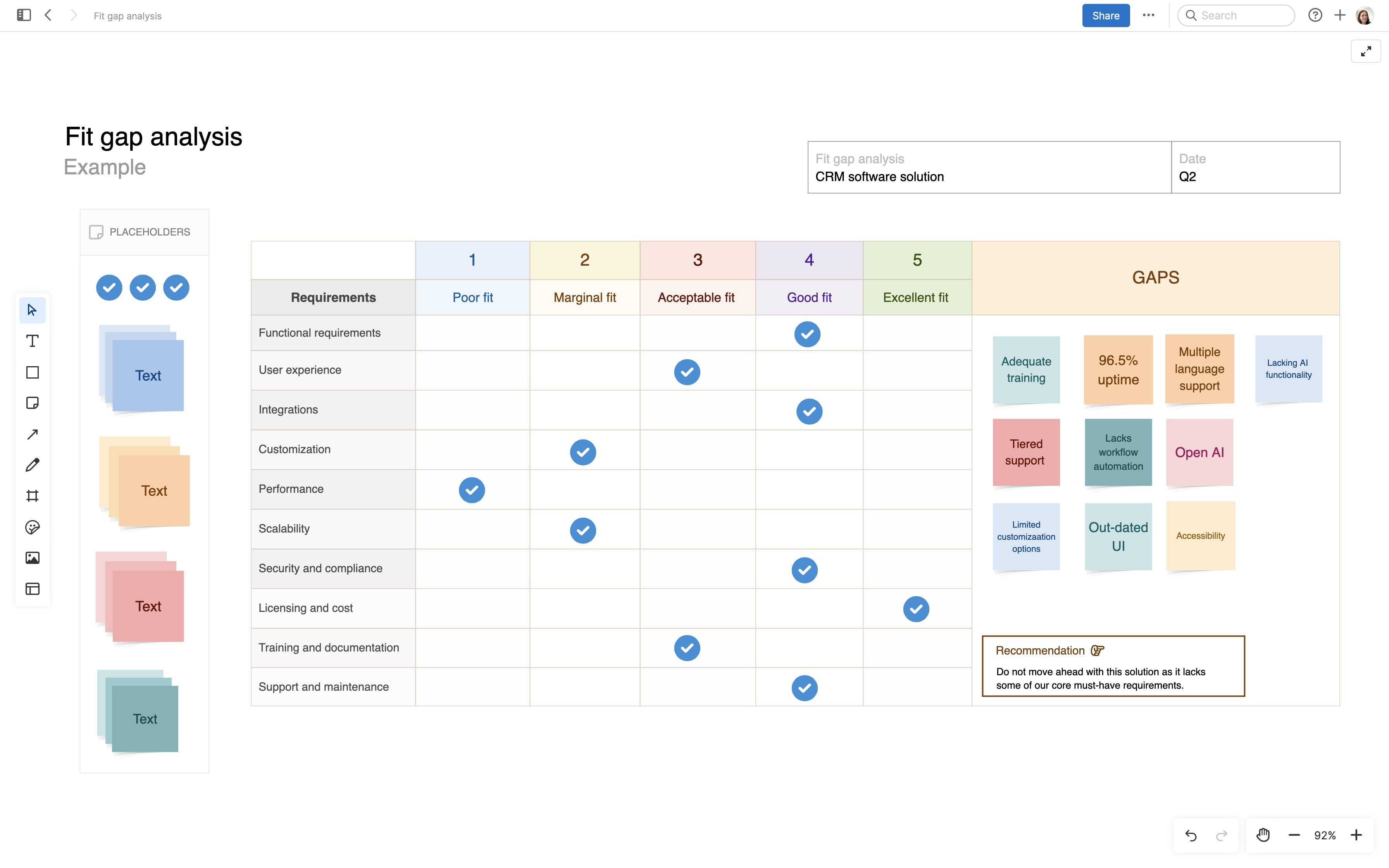
About the fit gap analysis template
Choosing new software takes more than just a feature checklist — you need to know it will actually support how your team works. A fit gap analysis helps by comparing what you need with what a tool provides, highlighting areas where it falls short. This template walks you through key factors like functionality, integrations, and usability so you can make a well-informed recommendation.
Included in the fit gap analysis template
This fit gap analysis template includes built-in capabilities such as:
A menu of classic whiteboard features (including shapes, sticky notes, grids, and emojis)
Quick access to best practices and a pre-filled fit gap analysis example for guidance
Inline comments to gather feedback, questions, and ideas from teammates
A voting tool to help everyone reach a consensus
Presentation frames to easily share your work
How to use the fit gap analysis template
Use the fit gap analysis template to evaluate whether a software solution meets your team's needs. Assess key factors like functionality, customization, integrations, security, and scalability. Mark where the tool fits, note any gaps, and consider workarounds (if needed).
No solution is perfect, so think beyond today — will it still work as your needs evolve? Involve teammates from different areas who will use the software to get a full picture before making a decision.
Best practices
Make sure the software you are considering meets your organization's needs before making a recommendation.
Define requirements: Capture your organization's specific software needs in the Requirements column. Get input from key stakeholders to make sure you cover everyone's must-haves.
Evaluate the solution: Rate how well the software meets each requirement using a scale of one to five. Add notes in the Gaps column to include context with your ratings.
Focus on gaps: Not all gaps carry the same weight. Some may be dealbreakers, while others are minor. Prioritize them based on their impact on your team.
Make a decision: Look at ways to address gaps through customizations, configurations, or workarounds. Then, decide whether to move forward with the software or keep exploring other options.
FAQs about the fit gap analysis template
Why use a fit gap analysis template?
A template keeps your evaluation consistent, helping you determine whether a software solution meets your organization's needs (fits) or falls short (gaps). By rating each requirement and noting unmet needs, you get a clear picture of whether the software is worth recommending.
What are some fit gap analysis best practices?
Define your key requirements upfront, placing must-haves at the top. Validate your list with stakeholders to ensure all critical needs are represented. Use check marks or a rating system to assess each fit — the template includes a suggested scale, but you can adjust it as needed.
How detailed should the criteria in a fit gap analysis template be?
Provide enough detail to add context to your ratings — especially when noting gaps — but keep descriptions concise. Too much detail can make analysis harder. Summarize your recommendation (including trade-offs or limitations) to support a more efficient decision-making process.
Is this template free to use?
Yes. To use this fit gap analysis template, sign up for a free 30-day trial of Aha! Whiteboards. (You can also try this template in Aha! Roadmaps if you need a complete product management solution.) Easily customize the template to suit your needs, then share it with as many people as you want (for free) to streamline collaboration.
